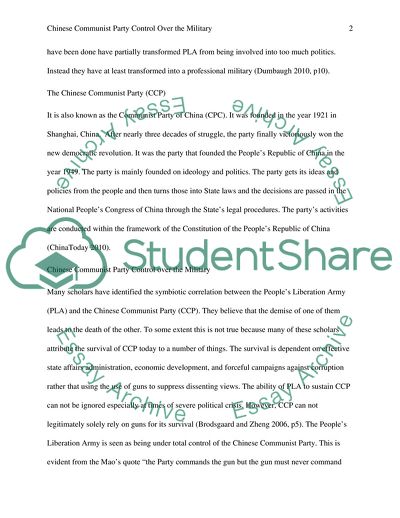Cite this document
(Chinese Communist Party Control Over the Military Case Study, n.d.)
Chinese Communist Party Control Over the Military Case Study. https://studentshare.org/history/1744804-has-the-chinese-communist-party-retained-control-over-the-military-re-mao-power-flows-from-the-barrel-of-the-gun-the-party-must-control-the-gun-how-and-why
Chinese Communist Party Control Over the Military Case Study. https://studentshare.org/history/1744804-has-the-chinese-communist-party-retained-control-over-the-military-re-mao-power-flows-from-the-barrel-of-the-gun-the-party-must-control-the-gun-how-and-why
(Chinese Communist Party Control Over the Military Case Study)
Chinese Communist Party Control Over the Military Case Study. https://studentshare.org/history/1744804-has-the-chinese-communist-party-retained-control-over-the-military-re-mao-power-flows-from-the-barrel-of-the-gun-the-party-must-control-the-gun-how-and-why.
Chinese Communist Party Control Over the Military Case Study. https://studentshare.org/history/1744804-has-the-chinese-communist-party-retained-control-over-the-military-re-mao-power-flows-from-the-barrel-of-the-gun-the-party-must-control-the-gun-how-and-why.
“Chinese Communist Party Control Over the Military Case Study”. https://studentshare.org/history/1744804-has-the-chinese-communist-party-retained-control-over-the-military-re-mao-power-flows-from-the-barrel-of-the-gun-the-party-must-control-the-gun-how-and-why.


